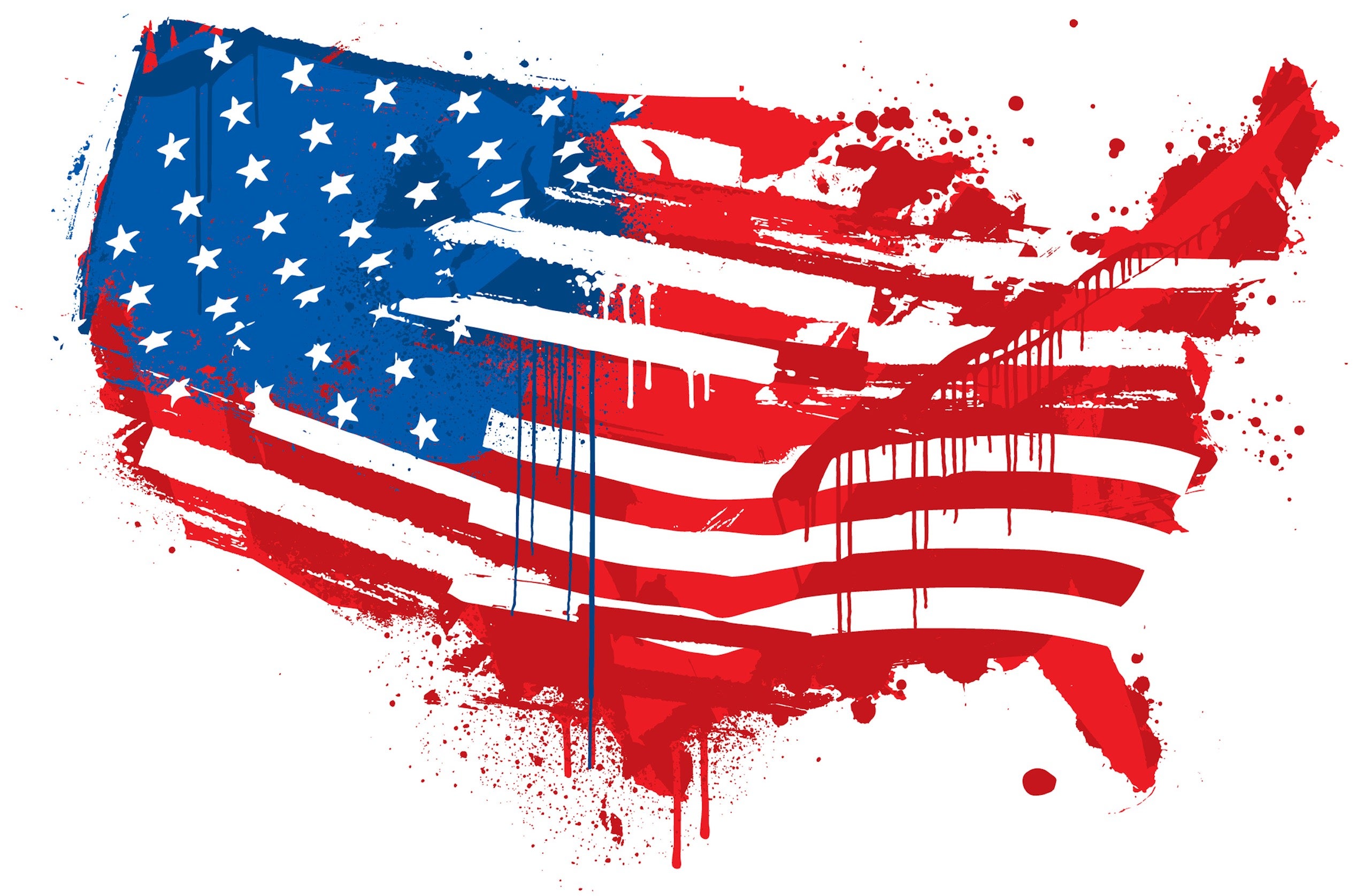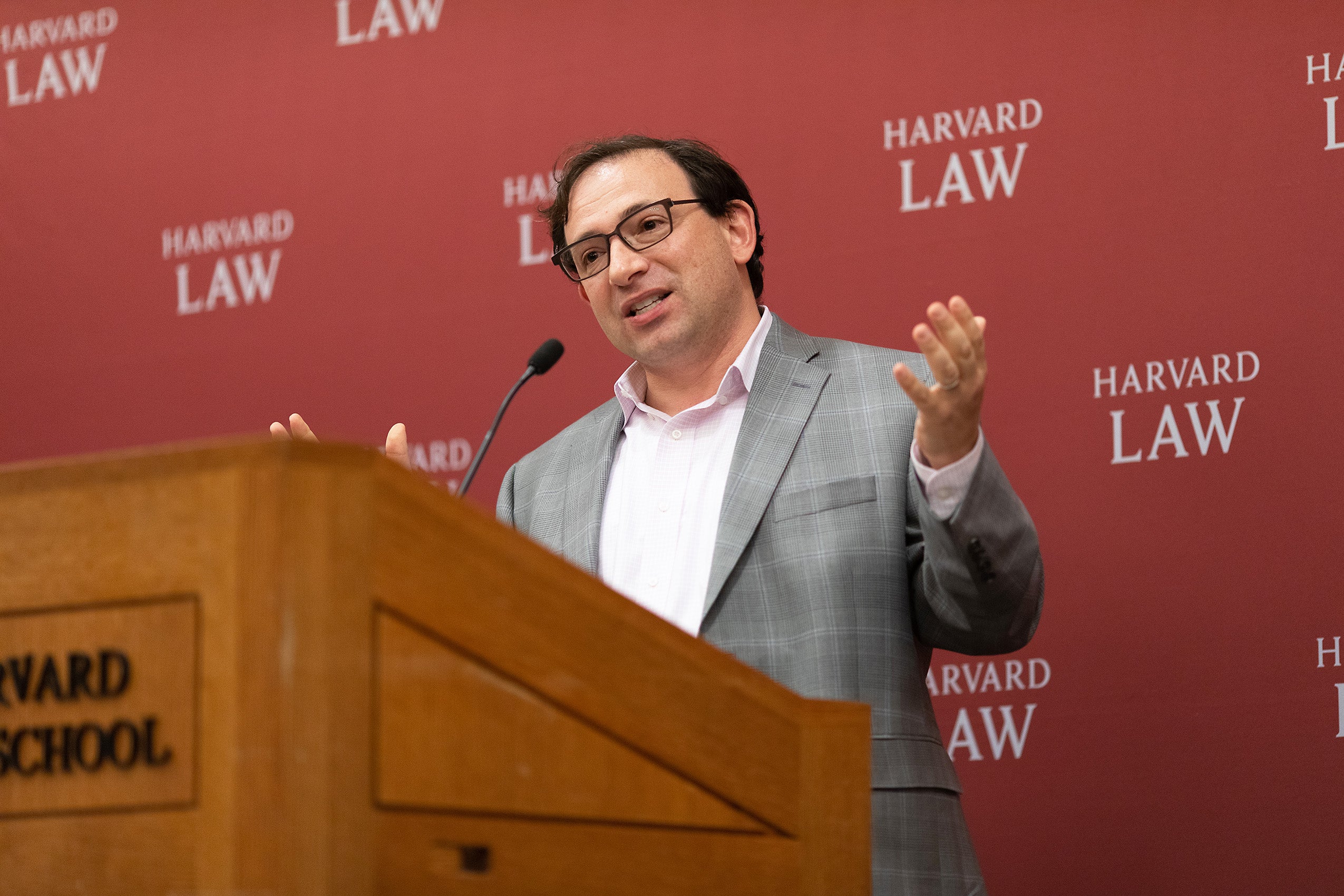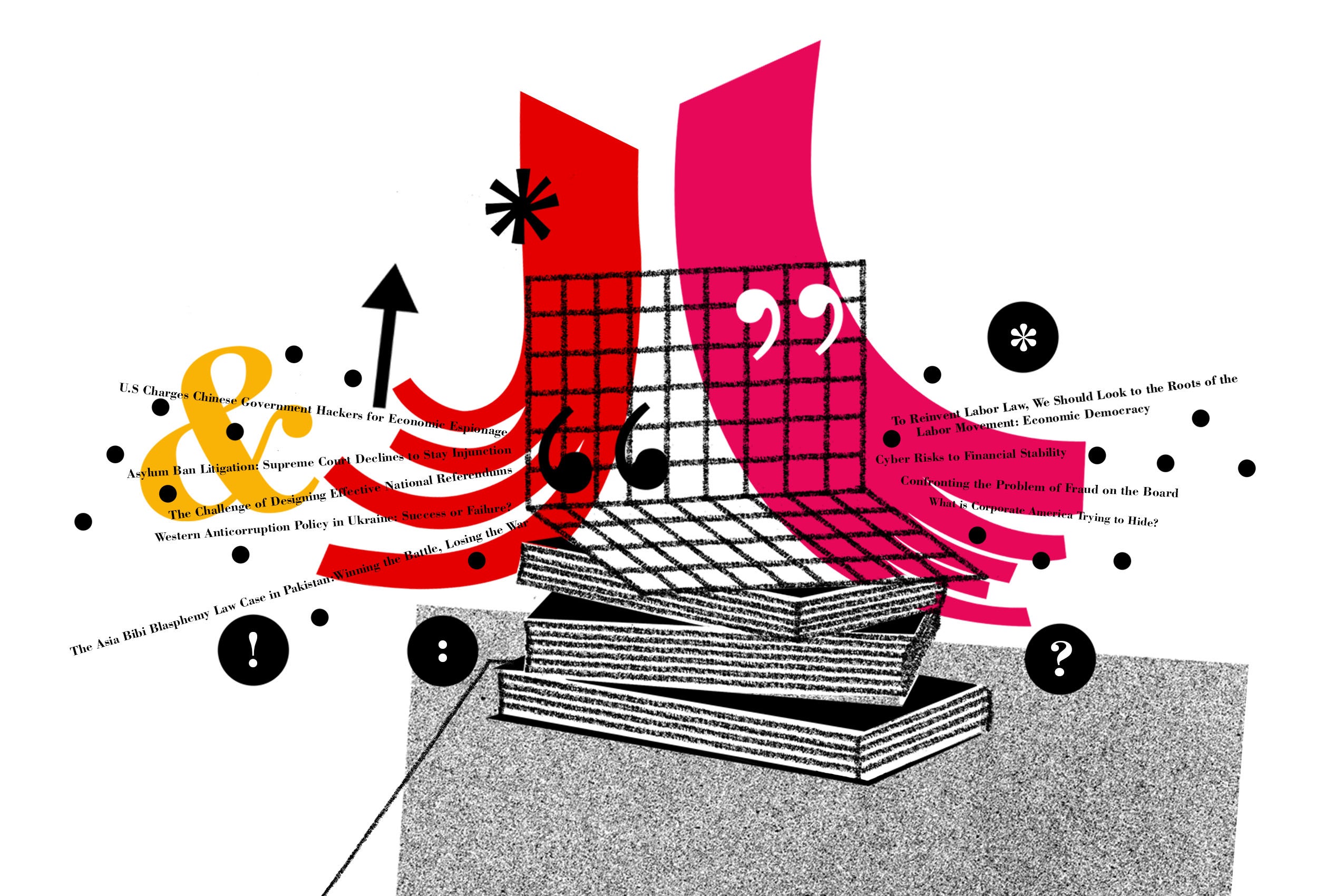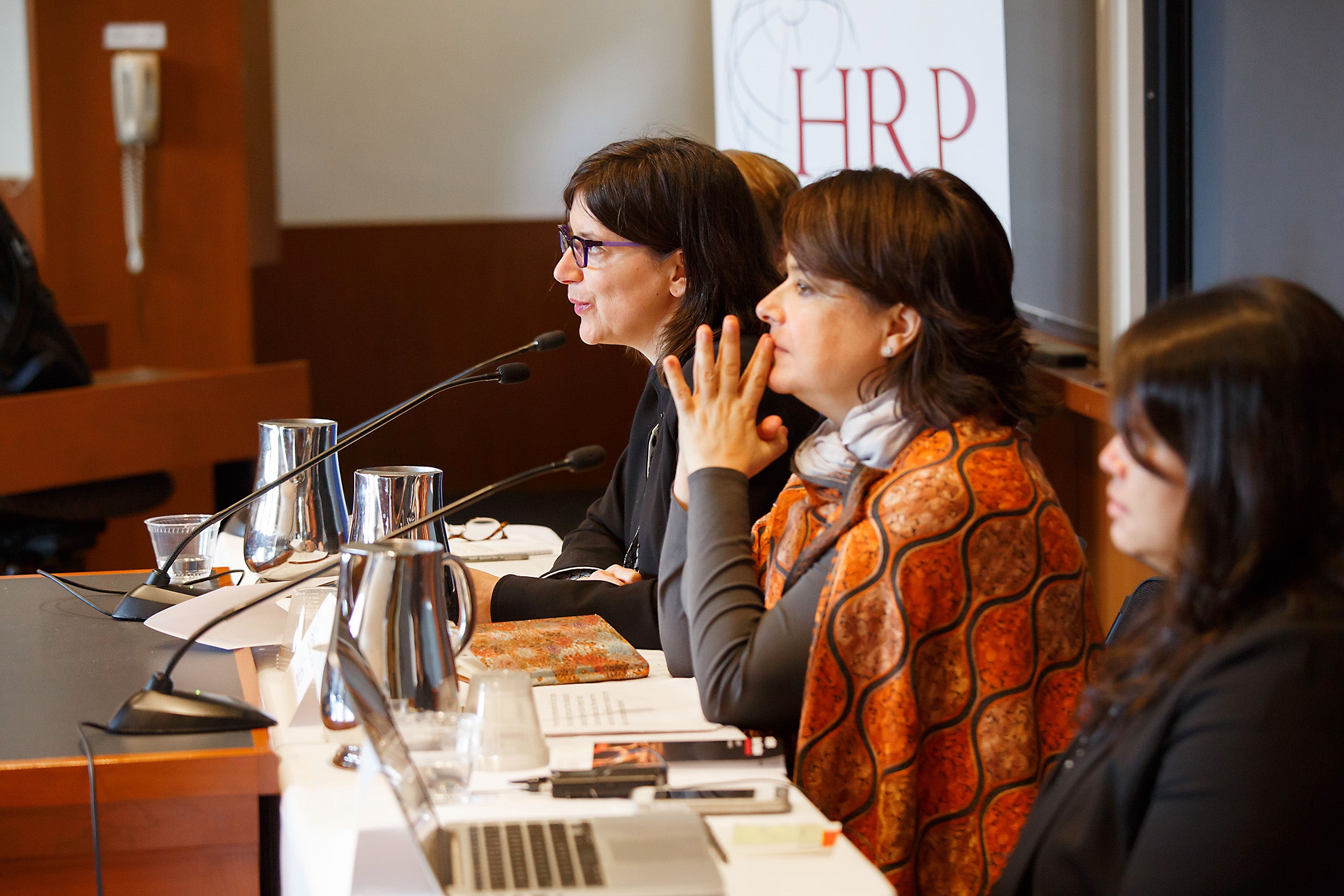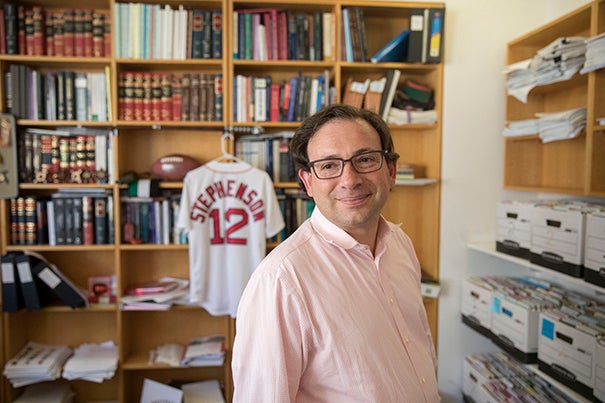People
Matthew Stephenson
-
Democracy’s Moment of Reckoning
May 14, 2021
Early in the morning of April 1, Texas state Senator Bryan Hughes, a Republican who represents a rural district in the northeast part of the state, posted a video to Twitter from the Capitol in Austin... “It’s a little after 2:30 in the morning and the Texas Senate has just recessed,” he said. “The Senate passed Senate Bill 7, which is an omnibus election integrity bill. This bill is about making it easy to vote and hard to cheat.” ... The For the People Act faces its own anti-democratic hurdle to passage—not one concocted by the Republican Party, but the legislative filibuster, a long-standing feature of the Senate that the Democratic caucus has the power to eliminate or change...Jonathan Gould of the University of California Berkeley School of Law and Harvard’s Kenneth Shepsle and Matthew Stephenson have been working on a fix for the filibuster that might unshackle Democrats while preserving their ability to resist minority rule if they lose power in Washington. “The essence of the proposal is to use the same tool that has given us the dysfunctional current filibuster—that is, the Senate power to determine its own rules of proceedings under Article 1, Section 5 of the Constitution—to move the Senate in a pro-democratic direction,” Stephenson said. “And that would be by replacing the current supermajority filibuster rule with what we call a popular majoritarian cloture rule, under which debate in the Senate on a measure could end only with the support of a majority of senators who collectively represent a majority of the population—or, more accurately, a larger share of the population than those senators in opposition.”
-
Don’t eliminate the filibuster. Democratize it.
April 7, 2021
An op-ed by Jonathan Gould, Kenneth Shepsle and Matthew Stephenson: Democrats are frustrated with the Senate filibuster blocking their legislative agenda. But the main problem with the filibuster isn’t that it’s bad for Democrats — it’s that it’s bad for democracy. Not only does the filibuster paralyze the Senate, but the 41-senator minority that can block popular legislation often represents an even smaller minority of Americans. That’s not how representative government is supposed to work. Yet eliminating the filibuster, as many are now urging, also poses a danger to democracy. Given the Senate’s extreme malapportionment — with two senators per state regardless of population — Senate majorities often represent fewer than half of the country’s citizens. For example, the 2017 tax cut passed with the support of 51 senators who represented only 43 percent of the population. Getting rid of the filibuster would alleviate minority obstruction today, but it would also increase the risk of minority rule in the future. There is a way out of this dilemma: Democratize the filibuster.
-
Donald Trump’s record on corruption and conflicts-of-interest
October 30, 2020
Promising to “drain the swamp” was a popular line in 2016. Four years on some Republicans still cheer, pointing out admiringly that President Donald Trump forgoes his $400,000 salary. Even critics concede that America continues to support sanctions on corrupt foreigners. And despite Mr Trump’s widely reported wish to scrap the Foreign Corrupt Practices Act, his government still energetically applies the law against paying bribes overseas. Yet concerns about what swamp-draining really meant surfaced early in Mr Trump’s presidency. Federal prosecutors looked into questionable spending around his inauguration. Among his first acts was to scrap a rule requiring oil and other firms to say what they paid foreigners. As for those swamp-dwelling lobbyists, he drained several directly into his cabinet. Mr. Trump’s reluctance to cut ties to his business interests, or to reveal what they were, was unlike anything seen for over a century. He concedes he owes hundreds of millions of dollars, but will not name his creditors...Worse than the venality has been the weakening of institutions meant to keep corruption in check. Take three examples. The first relates to indictments of men—Michael Cohen, Michael Flynn, Rick Gates, Paul Manafort, Roger Stone—who hung close to Mr. Trump. All were convicted of crimes. Steve Bannon, another close adviser, was charged with fraud in August. Scandal has embroiled various cabinet officials. A culture of rule-breaking is encouraged by the boss: in July he commuted the sentence of Mr. Stone, convicted of seven felonies. Next are efforts to break those who would resist, such as the whistle-blowers, professional civil servants, who testified against Mr Trump in his impeachment trial. An executive order he signed in mid-October grants him the power to fire such officials. Matthew Stephenson of Harvard Law School says this “threatens to subvert one of the most important bulwarks against corruption in all of us law”.
-
A history of corruption in the United States
September 23, 2020
Anti-corruption law expert Matthew Stephenson focuses his recent scholarship on anticorruption reform in U.S. history.
-
DOJ’s Administrative Law Goals Face Long Odds In Congress
August 14, 2020
Top U.S. Department of Justice officials recently made the case for updating a decades-old law that dictates the process for making federal regulations, saying the cost and amount of rules has spiraled out of control, but the changes they seek appear to lack the bipartisan support they'd need in Congress. Several DOJ leaders, including Deputy Attorney General Jeffrey Rosen and Solicitor General Noel Francisco, said in a department report published this week that the Administrative Procedure Act should be amended to better control the activities of the "administrative state," which they criticized as having grown in size and effect far beyond what the drafters of the 1946 law could have envisioned. Republicans in recent years have failed in several attempts at legislation that would do some of what's been endorsed by the DOJ leaders, from giving Congress more oversight power to codifying stricter procedures for rulemaking...And while there may be some bipartisan support for changes to the APA at some level, the fact that it has become a political issue may make it more difficult to move legislation through Congress, Harvard Law School professor Matthew Stephenson said. "There are some pieces of the Regulatory Accountability Act and some of these other pieces of legislation that might attract some degree of bipartisan support, but at this point, my read of the politics on this is that as soon as Jeffrey Rosen and Noel Francisco and the president wrap their arms around this, it becomes toxic to Democrats," Stephenson said. He said some Democrats are convinced the APA reform effort isn't really about good governance but rather a "not-so-hidden agenda" of reducing regulation and regulatory costs for businesses. Even so, he said Republicans may be playing a long game by trying to keep the ideas in circulation until the GOP holds sufficient power to push the effort forward.
-
New Podcast, Featuring Roberto de Michele and Francesco De Simone
February 25, 2020
A podcast by Matthew Stephenson: A new episode of KickBack: The Global Anticorruption Podcast is now available. This episode features my interview with Roberto de Michele and Francesco De Simone, who work as the state modernization specialists at the Inter-American Development Bank (IDB). In our conversation, we discuss the work that the IDB does on anticorruption, transparency, and related issues, and also how the IDB (or any other entity working in this area) can assess the impact of its projects. We further discuss the relationship between grand and petty corruption, and closely associated questions concerning incremental versus disruptive anticorruption reform strategies. (This discussion includes some discussions of the recommendations of the report prepared by an outside expert advisory group commissioned by the IDB, which Rick discussed shortly after it came out.) Toward the end of the interview, we talk about the impact that scholarly research has had on Roberto and Francesco’s thinking on anticorruption-related topics, and we conclude the interview with a discussion of the current state of corruption in the Americas–considering both the optimistic and pessimistic views of where things are going in the region.
-
In chair lecture, Stephenson explores corruption and its impact
November 20, 2019
Stephenson, an expert in anticorruption law, legislation, and administrative law, commemorated his appointment as the Eli Goldston Professor of Law with a lecture at Harvard Law School titled, “Corruption and Anticorruption.”
-
The American Bar Association is fighting Washington’s efforts to tackle money laundering
July 2, 2019
The body representing America’s lawyers has staked out an eye-opening position in recent years—lobbying against efforts in Congress to close a loophole that enables terrorism, human trafficking, money laundering, and a host of other crimes. The legislation would force the owners of US companies to disclose their identities to the authorities. The move would make it much harder for criminals to hide their money in shell companies with anodyne names; something anti-corruption experts and law enforcement say is a crucial step in fighting financial crime and ending America’s status as the world’s biggest tax haven...The ABA declined to comment on the record for this piece, but has said it objects to the legislation because, they argue, it would burden small businesses and pose privacy concerns for entrepreneurs. In a recent letter of opposition, the ABA’s president said the organization supports “reasonable and necessary” measures to fight money laundering and terrorist financing, and offered to discuss other solutions with lawmakers. These arguments are met with deep cynicism among corruption scholars and pro-transparency advocates. While describing the ABA’s case in a blog post earlier this year, Harvard law professor Matthew Stephenson wrote, “I’m trying to find a polite euphemism for ‘self-serving and intellectually bankrupt,’ but I’m having trouble.”
-
Law’s Influencers
February 26, 2019
HLS faculty blogs on law-related topics are reaching thousands—sometimes millions—and have become required reading for experts.
-
Roughly two dozen Harvard Law School professors have signed a New York Times editorial arguing that the United States Senate should not confirm Judge Brett M. Kavanaugh as an Associate Justice of the Supreme Court. Harvard affiliates — including former Law School Dean Martha L. Minow and Laurence Tribe — joined more than 1,000 law professors across the country in signing the editorial, published online Wednesday. The professors wrote that Kavanaugh displayed a lack of “impartiality and judicial temperament requisite to sit on the highest court of our land” in the heated testimony he gave during a nationally televised hearing held Sept. 27 in front of the Senate Judiciary Committee....As of late Wednesday, the letter had been signed by the following: Sabi Ardalan, Christopher T. Bavitz, Elizabeth Bartholet, Christine Desan, Susan H. Farbstein, Nancy Gertner, Robert Greenwald, Michael Gregory, Janet Halley, Jon Hanson, Adriaan Lanni, Bruce H. Mann, Frank Michelman, Martha Minow, Robert H. Mnookin, Intisar Rabb, Daphna Renan, David L. Shapiro, Joseph William Singer, Carol S. Steiker, Matthew C. Stephenson, Laurence Tribe, Lucie White, Alex Whiting, Jonathan Zittrain
-
Human Rights in a Time of Populism (video)
May 9, 2018
The global impact of populist movements was the topic of “Human Rights in a Time of Populism,” a two-day symposium held at Harvard Law School, where participants examined the challenges that current developments characterized as populist pose to the goals of the international human rights system.
-
Agricultural Land Ownership by African-Americans/Political Corruptions and Consequence (audio)
January 16, 2018
An interview with Matthew Stephenson. First, did predatory developers use the law to confiscate thousands of acres from African-American?...Then, we continue analyzing political corruption, its causes, consequences and remedies.
-
Trump’s Exit From Anti-Corruption Pact Helps Big Oil Hide How Much It Pays In US Taxes
November 6, 2017
The Trump administration has pulled out of a global deal to combat corruption in the fossil fuel industry, a move critics said could help oil companies keep hidden how much they pay in U.S. taxes. The Department of the Interior announced the decision on Thursday in a letter to withdraw immediately from the Extractive Industries Transparency Initiative (EITI), which compels oil, gas and mining companies to disclose payments to governments worldwide...“The decision to pull out was of greater symbolic significance than anything else,” Matthew Stephenson, a Harvard Law School professor who writes a blog about corruption, told HuffPost by phone on Friday. “It indicated the U.S. no longer had an interest in working with, let alone leading, the international community on this issue.”
-
Spotlight on populist plutocrats: A Q&A with Matthew Stephenson
September 22, 2017
In advance of a conference on Saturday, Sept. 23 at HLS, Harvard Law Professor Matthew Stephenson spoke with the Harvard Gazette about the global phenomenon of "populist plutocrats:" politicians who exploit anti-elite sentiment to win elections, then use the presidency to advance the interests of themselves and their allies.
-
Spotlight on populist plutocrats
September 22, 2017
A rich candidate campaigns as a representative of the common man against a shadowy elite, but once in office governs in ways that support and enrich people like him...To understand the phenomenon of populist plutocrats, a Harvard conference on Saturday will host a gathering of analysts who will discuss political leaders from Italy, Thailand, the Philippines, Peru, and South Africa who share at least some of the expressed characteristics. In advance of the session, the Gazette interviewed Harvard Law School Professor Matthew Stephenson, who is one of the organizers and who researches anticorruption from an international and comparative perspective, about how the gathering aims to help people learn lessons from around the world about how populist plutocracy works.
-
Donald Trump’s Feud With Nordstrom Sparks Warnings From Ethics Experts
February 10, 2017
President Donald Trump is known for shattering political precedent, but experts say the White House's war on Nordstrom for dropping his daughter's clothing line is ordinary behavior. Just not in America. "This is so common in so many parts of the world that perhaps we shouldn't be surprised it eventually happened here," said Matthew Stephenson, a Harvard law professor who studies international corruption. "I'm hoping we find a way to nip it in the bud before it gets out of control."
-
Will Overseas Bribery Target Come Off Biopharmas?
January 12, 2017
Past comments by President-elect Donald Trump are prompting some to think that his administration may lessen enforcement of laws prohibiting bribery of foreign officials. The Foreign Corrupt Practices Act, enacted in 1977, generally prohibits paying bribes to foreign officials to assist in obtaining or retaining business. For the last five years, biopharmas have been in the cross-hairs of the Department of Justice and the Securities Exchange Commission, which jointly enforce the FCPA...What will Trump advocate once he is sworn in as president? Matthew Stephenson, a law professor at Harvard University, told me in an interview for my special report that he was more pessimistic than others. "I don’t expect much to change in the short term, but I am concerned about the mid- and long-term. There is a tremendous amount of uncertainty,” he said.
-
Shielding Seized Assets From Corruption’s Clutches
January 2, 2017
One would think that an iconic Michael Jackson “Bad Tour” glove, covered in Swarovski crystals and worn on his first solo tour, would rest in a place of honor, perhaps at the Rock & Roll Hall of Fame in Cleveland. Hardly. The bejeweled glove is thousands of miles away in the oil-rich, deeply impoverished country of Equatorial Guinea. And the people of this West African nation, most of whom live on less than $2 a day, have paid dearly for it. The glove, and its odd stewardship, embody the profound difficulties surrounding the Kleptocracy Asset Recovery Initiative, a six-year effort by the United States to seize assets owned by kleptocrats — government officials who use their countries’ wealth to enrich themselves...“The election of Donald Trump might impede the commitment of the United States to fight kleptocracy,” said Matthew C. Stephenson, a professor who teaches anticorruption law at Harvard Law School. “The political consequences are that it reduces U.S. leverage because of the perceived hypocrisy. The moral case is drastically undermined.”

